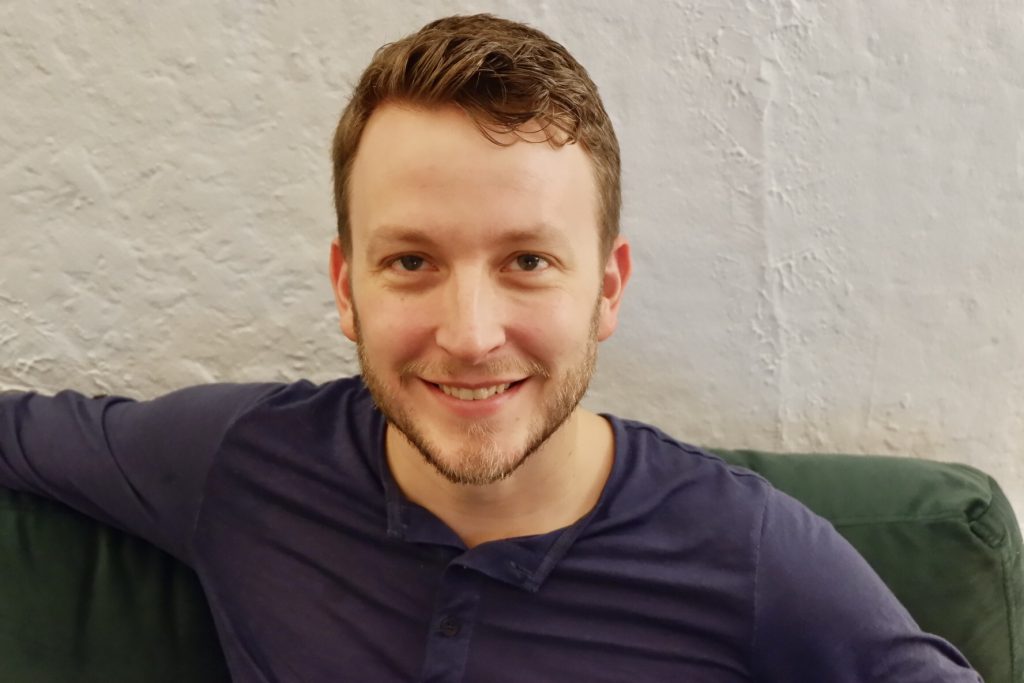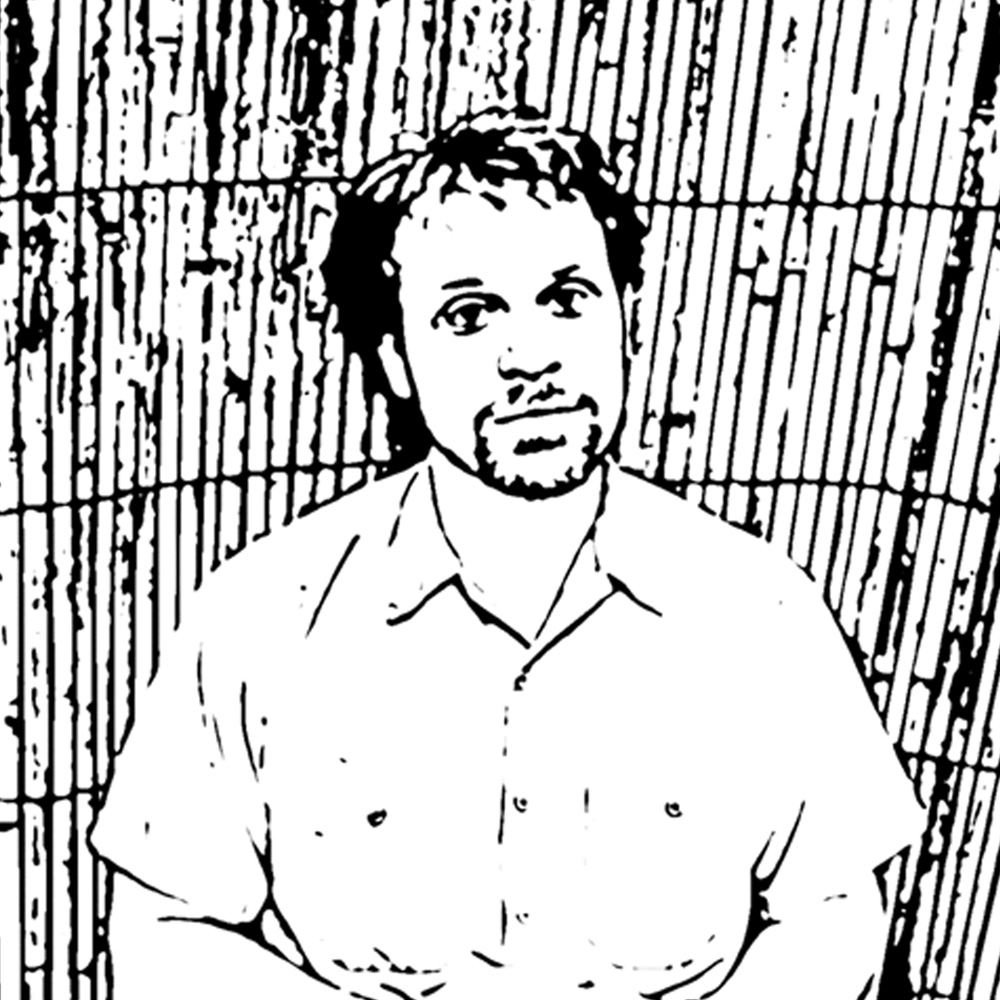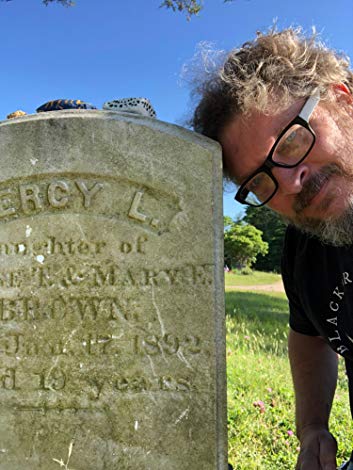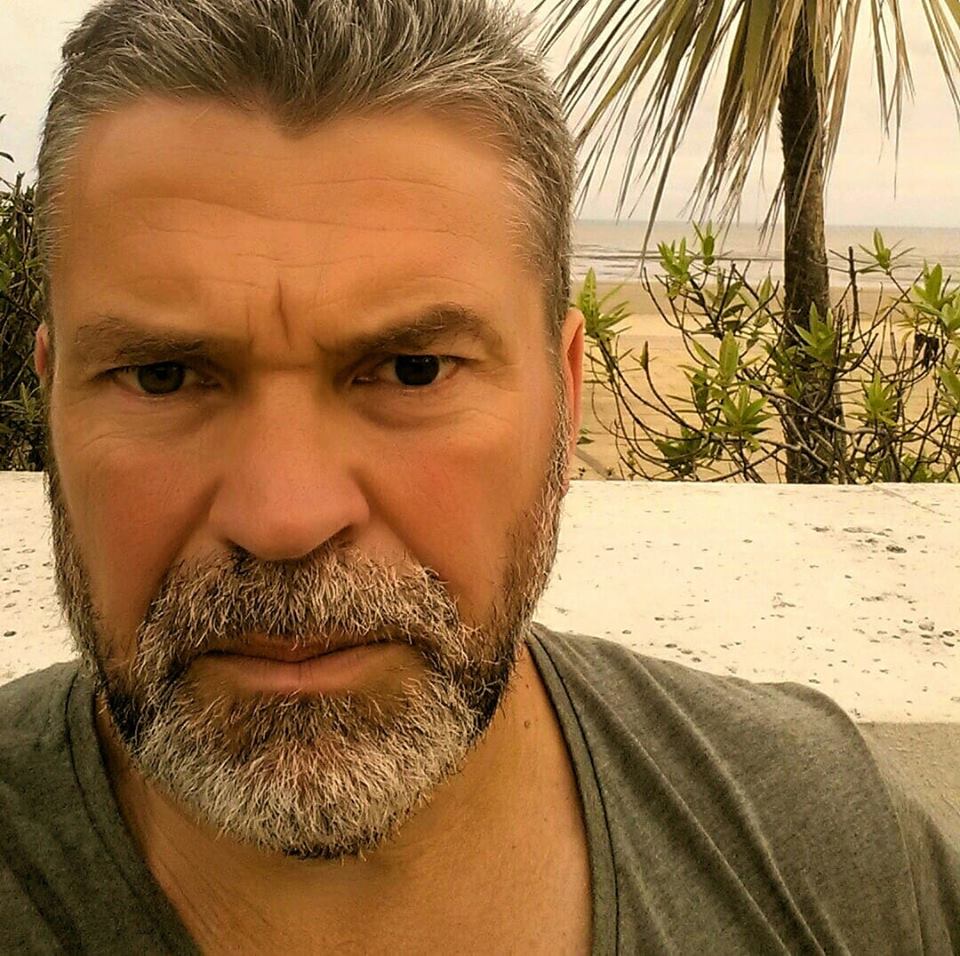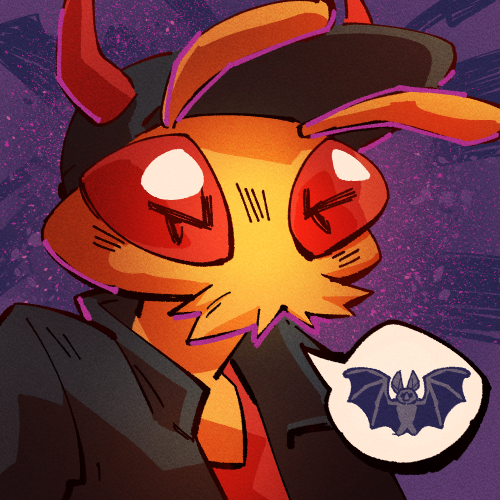edited by Ziv Wities and David Steffen
I turned my father off again.
I needed a break. I needed silence. I needed to hear the sound of my own thoughts. Not the endless monologue of shuttle systems status, mixed with memories and declarations, all emitting from Father’s broken mind and body.
In our little space cruiser, it is still but not quiet. Father’s labored breathing, punctuated by coughs and chokes, surrounds me as he struggles to stay alive without the cruiser’s medical emergency program helping him. My heart pounds in my chest, shakes me with every beat. My breathing is quiet and slow, a whisper in the cold thin air.
Reaching out to Father, I place my hand on his chest. Even through his spacesuit I can feel his heart, fluttering but persistent. Still alive. Still working.
Our helmets are off. Our breath collects in fog in the space between us.
Just go on like this, I think. Go on until his heart stops. Without him running the shuttle, I will succumb to the cold and lack of oxygen and surrender to the star-filled void around us.
I consider it, again. I have considered it every time I have disconnected Father. And I reach the answer I have reached every time I have considered it.
No. Not yet. Keep hoping for a rescue. Keep living.
I switch the medical system back on. Alarms sound as it realizes Father’s condition and injects drugs through the dermal patches.
Father gasps, audibly, as his body is slammed back to stability.
After I reattach the careful tangle of wires connecting the shuttle’s control system to the interface cap fitted to his head, his voice echoes through the shuttle’s speakers.
“Son. Son. You should not disconnect me. I have told you this before.” He is scolding me, but he is also afraid.
“Yes, Father. I know. I am sorry.”
“Checking system status.”
The litany begins, his voice droning like prayers.
“Internal temperature 4.17 degrees. Rerouting ambient reactor heat to cabin.
“Oxygen concentration 11.64 percent. Scrubbers operational, 37.94 percent efficiency. Estimate normal mix in 8.05 hours.
“Eight point zero five.
“Five.”
He slowly sighs. His mind has found an unexpected road and is running down it in pursuit of a memory.
“You were five. We still lived on Earth, but had decided to leave for a mining homestead in the asteroid belt. There was nothing left for us on Earth, in our cardboard shack in the South San Francisco favela.
“We wanted to have one special moment. We splurged and took you to the little Golden Star Amusement Park in the Sunset. You always wanted to go there. You were enchanted by the Dragon rollercoaster. You rode it over and over, until you were sick to your stomach. Even then, you cried when we left for home.
“Home.
“Home is mining asteroid (142823) 2026-MC13. Estimate distance to home 1.8598 million kilometers. Estimate distance to Ceres 1.8528 million kilometers. Estimate velocity normal to solar system 24.931 thousand kilometers per hour. Time since accident 42.190 hours. Estimate probability of distress signal reaching Ceres Station 3.14 percent.”
Father’s monologue of shuttle status and random memory continues, but the summary is always the same. Our shuttle is damaged. My father is damaged. My father, through the interface cap and the rewiring to the shuttle components that still work, keeps life support barely running. The emergency medical system keeps my father barely alive. We are above the plane of the solar system, on a constant vector away from both home and from Ceres, with no way to change that fact.
We are adrift in the void, with my father’s voice as a constant reminder of the darkness of our situation.
#
A simple trip. A shuttle run back to Ceres headquarters. Printer stocks, hydroponics supplies, reactor fuel, necessary in-person meetings with the corporation.
When I was young, I loved the Ceres trips. Not just because I could see, in person, friends who I only knew through my virtual classrooms. Not just because at Ceres in the open habitat we could walk and run and play without pressure suits constraining our movement.
I loved the trips because they were joyous times with my family, together, without my parents working hard at the mining operations or me buried fourteen hours a day in schoolwork and lessons and mandatory exercise. On the shuttle, we sang songs, listened to music, played games, laughed. Mother told me stories about the stars, myths and legends from her childhood. I listened in wonder and joy. We were a real family, like the ones I read about on the chat boards or saw on the video streams.
Mother died in an accident when I was fourteen.
Life was never the same. Quiet melancholy replaced chaotic joy. Father and I buried ourselves in our work. I took on mining responsibilities along with my schoolwork. Father and I communicated only in data points – status, machines, daily production, shipments, coursework. On the Ceres trips, we traveled in silence. Prayer music played non-stop on the journey. Father controlled the shuttle with the interface headset, eyes gazing into a virtual display of shuttle information, status and control that I could not see.
On these trips, our only conversations were arguments.
“Father, you should add me to the shuttle control interface so I can learn to fly the shuttle and manage the systems. I can help with the burden.”
“You are too young.” His voice, which he routed through the speakers while controlling the shuttle, was always too loud.
My anger came easily. “I’m seventeen! I have top marks in my coursework. I maintain the mining robots. I can run a shuttle.”
“You are not ready.”
“Then let me go to university on Ceres, in person, so I can get my next degrees.”
“You can not leave for university on Ceres!” His anger took longer than mine, but it always arrived, in an explosion that blew static through the speakers.
After that, silence again, staring out the small portholes at the stars until we arrived at Ceres and went our separate ways.
We had already done our arguing when the first meteorite swarm hit. Small enough it didn’t register on the long range sensors, but still large enough to badly damage the shuttle. It didn’t help that our shuttle was old, second-hand, and in need of more repair than we could afford. Mining life is perching on the perpetual edge of disaster, grinding out as much profit as possible for the corporation to which we were indebted.
Father was outside assessing the damage when the second, larger, swarm hit. His screams echoed through the communications link, followed by gasps and whimpering mixed with the pattering of meteorites on the hull.
Somehow, I dragged him through the airlock and inside.
Somehow, I hooked him up to the emergency medical system, followed the prompts and gave him drugs to keep his heart beating and his lungs moving.
Somehow, he survived.
“Son. Are you?” His voice was soft, and weak.
“I’m alive, Father. You are too.”
“Barely. Ship?”
“Still intact, obviously. But there was a power overload. It burned out the main computers, stellar navigation, the engines, everything. We’re on minimal backup on all systems.” I had checked everything I could check, without command access. It was all ruined.
“Saw communications array. Ruined.”
“We are doomed, Father.”
“No.” The force in his voice surprised me. “We can live. We can rewire the shuttle. I can control basic life support systems. I will give you instructions. You will do the work.”
That was the first day. Father giving instructions or suggestions, me breaking and making connections throughout the shuttle. By the end of the day we had the headset interface wired into basic life support: heat, oxygen, water reclamation. We had enough to keep us alive for perhaps a week. We had a chance.
But we were also adrift. Based on the last sensor readings, and celestial sightings, I calculated we were now pointing away from the plane of the solar system. The final burst of the dying engines had sent us off course. We were moving away from anyone that could save us, farther and farther every minute.
Father, injured physically and mentally, monitored all the critical systems. By the end of the first day he was already reciting shuttle status and making connections with whatever memories were welling in his fractured mind.
“Oxygen scrubbing at 61.34 percent efficiency.
“Estimate 1.1838 million kilometers from Ceres, based on position of reference stars.
“Stars.
“Stars in the sky, above home.
“The first day we arrived at the asteroid, you were angry because we had left Ceres. We took you outside to the surface and showed you the stars. We told you their names, traced their constellations, recited their myths. For hours we did that. You loved it.”
“Yes, Father. I still do.” When I was angry, or frustrated, I would go stand on the surface of our asteroid and get lost in the stars and the stories.
Now they were a threat. They scared me.
“I’m sorry, Son. I’m sorry we are in this situation. I’m sorry I kept you at home. I’m sorry for everything.”
#
“Three days, fourteen hours, fifteen minutes since the accident,” my father recites.
“Estimate 3.1983 million kilometers from Ceres.
“Water purity 78.11 percent. Supply tank 7.32 percent.
“Water. Flowing in a river.
“When your mother and I were young and courting, we took a camping trip to the Red River to see the Silver Falls. From high above us, glistening water fell over a cliff, through the sky, pounded into the earth below, and flowed away into the river. So much power in water. On the asteroid I dream of that much water, cascading across our small rock.
“We don’t have enough water, Son. We will not survive.”
Father is sad. Depressed. Each hour he seems to sink further and faster into a vast dark place, like the vast dark void around us.
“Hold on, Father.” I try to say this with hope. “There is still a chance someone will find us.”
“There is no chance. We are dying. You are dying. It is my fault. All my fault.” He cries. Tears pool against his face, sobs echo from the speakers. Not even when Mother died was he this emotional. This despondent. This lost.
I am anxious, jittery. I don’t know how to comfort him. I don’t want to turn him off any more. But I can’t sit here. I need to move.
“Father, I am going outside. I will walk the shuttle.”
No answer, just more tears and sobs that batter at me as I make my way through the airlock and to the outside.
Outside I turn off my communications link, engage the magnetics in my shoes, and stand on the shuttle’s skin. The stars are infinite in their numbers all around me. I pick out the constellations. The Hunter. The Judge. The Wanderer. They stand, silent. I ask for answers but get none.
I walk the shuttle’s hull. My breathing falls in time with the force of my steps, echoing inside my suit. Sol burns before me as I round the shuttle. Beckoning. Taunting. Smaller and smaller with every second.
We are doomed. We have no thrust towards Ceres. We have no communications. We are running out of clean atmosphere and clean water. Our food is gone. The magnetic couplings on my boots are the only thing keeping me from floating away.
I could release the couplings, disconnect from the umbilical, push off from the shuttle, and drift away. Become one with the stars and the myths.
Push hard enough from the correct location and the shuttle might be directed, so very slightly, towards the solar system. Father might be found. He might even stay alive.
I could do it.
But in those moments, before the end came, Father would be alone. I can’t leave him alone. I am all he has. He is all I have.
I must find a solution.
Walking brings me to the communications array. A tangled nest of wires and equipment, shot through with holes from the meteorites, burned in places from the power overload. Could something useful be left? There was so much work to keep Father alive, to reorganize the shuttle to keep us alive, I hadn’t thought of the possibility.
I poke and sort through the tangle, find enough of the transmission antenna to send a signal. We would need a way to direct and focus the signal, to push it towards Ceres. A reflector. But the meteors tore off the reflector.
Panels from the shuttle’s hull could make a reflector. Without the need to heat and oxygenate the shuttle’s interior, just our suits, we’d have more power to boost the strength of the signal. Vent the atmosphere before removing the panels and we could even get a slight push towards Ceres.
This is a dangerous idea. We would be exposed to the frigid dark of open space. We could die.
If we do nothing, we will die anyway.
I turn on my communications link, to the sound of Father, panicked, crying.
“Son, please respond. Son, please respond. Son, please respond.”
“I’m here, Father.”
“Son, I was worried, I was afraid. I was alone.”
“You are not alone, Father. I am here.” I make sure to sound confident, raise his spirits somehow. “Father, I have an idea.”
#
Father’s space suit is too far damaged to provide any resistance against outer space. Over his objections, he will take my suit and I will wear the backup suit. Carefully, I trade suits. Bruises, dried blood and sweat coat his body so I take some time to clean him off. I try not to hurt him any further as I dress him in my suit.
Briefly, I must disconnect him from the shuttle controls. During this time I work as fast as possible to keep him from getting too cold.
When I get him fully in his suit and the interface headset reconnected, his voice nearly bursts from the speakers.
“Son! It was so dark. Are you ready?”
“Yes, Father.” The backup suit is a tight fit but it will work for our purposes.
“Preparing systems for the signal burst. Diverting ambient reactor heat to the suit umbilicals. Cutting air recycling to only the suit umbilicals. Atmosphere mix at 10.11 percent oxygen. Begin reconstruction of the communications reflector using shuttle panels.”
Outside, our last air hisses out as I drill holes in the hull on the opposite side of where we think Ceres is. I hope it helps.
The work to build a signal reflector is slow and tedious. I only have two charged batteries, and a handful of tools. I use them as little as possible, and do anything I can by hand. It is difficult work. Sweat gathers inside my suit faster than the dehumidifier can pull it out. Pools of water collect on my face and I have to shake my head to try to move them away. My muscles ache and I am tired.
Father talks to me throughout. Status, memories, an endless loop.
In the last four days, he has said more to me than in the preceding three years. Even though it is a monologue more than a conversation, I somehow find it comforting. A connection.
Finally, we have a crude antenna and a signal reflector. The reflector is pointed in the direction of Ceres, our last hope against the vast void of space.
Back inside, I strap into my seat. Father is a small man in a small spacesuit. The moisture in the shuttle air has frozen onto everything including his face panel. I brush ice and dust off the face panel. I’m not sure if he can see me, but I smile.
“Father, we are ready.”
“Beginning power diversion to transmitter. Transmitting distress signal burst. Cycle one.
“Transmitting distress signal burst, cycle two.”
Now that I am not working, the cold invades my suit and I am chilled. I am tired, and ache from the effort of the work. The suits will keep us warm. How long, we don’t know.
“Transmitting distress signal burst, cycle eleven.”
Pieces of a constellation of stars appear in the gaps in the shuttle’s hull. The Dragon, twisting, flying, burning those that threaten its home.
“Transmitting distress signal burst, cycle twenty-seven.”
I am so tired. It is so cold.
The void calls me with stories and dreams, and I go to it.
#
A light in my face. The dull sensation of someone poking my chest.
A woman’s voice. “Hey, hey. Wake up now.”
Breathing deep, my lungs burn and I cough. There are tubes in my nose, gusts of warm air tickle my throat. I smell antiseptic, sterilizer, and behind it the hint of rusted metal, dirty oil, people.
I’m on a spaceship. In a medical bay.
I am covered in metallic blankets. My arms and legs are stiff and barely move.
“Stay still there,” the woman says. “I’m still running a warming cycle on you. We just got you back.”
Cracking my eyes open, I see a small black woman with short grey hair.
“Where,” I say in a croaking voice. My lips and throat are dry and rough.
“Naval cargo cruiser Morning Glory. Your distress signal was received and we were closest.”
“Father?”
“Your father is dead. The meteorite damage. The cold. He didn’t make it.” She lays a soft hand on my forehead. “I’m sorry.”
I shake as the reality of his death washes over me. I knew it was likely. It still hurts. The empty place that was my father’s presence in my life joins inside with the hole my mother left. I try to cry, but I am so tired and sore I am reduced to slow, simple, whimpering.
I want to know where he is. “Shuttle?”
“Your shuttle is in a cargo hold. Your father is there, too. The crew made a coffin for him, from a cold storage container.”
“See him.”
“Later. Right now, you need to rest. We’re mid-run right now, but we’ll be at Ceres in two days.”
Warm liquid crawls up my arm. By the time it reaches my chest I am very sleepy. The medical bay is quiet. The click of machines, the doctor humming a tune I don’t know. There is no voice, no status, no constant presentation of statistics and danger and possibilities and concern.
I miss it.
#
When I awaken I am stronger and can move. I demand to be taken to our shuttle. Officers take my statement as they guide me to the cargo hold. They confirm what was stored in the shuttle’s logs and compliment our ingenuity, our bravery, and my father’s sacrifice.
They leave me at the shuttle. Broken and tattered by the meteorites and by our disassembly, it looks small and helpless in the large hold of the cruiser. It is a wonder we survived.
Next to the shuttle is a small metal box, military logos on both sides. My father’s coffin.
I want to see him.
I crack open the coffin. Cold gas escapes and condenses in a fog.
I wave it away until I can see Father. His expression is peaceful, even serene.
I place my hand on his chest. It is frigid. I don’t care.
“I am alive, Father. The signal was received.”
I don’t know what to say. I know he will not respond, but I keep waiting for him to talk, to tell me the atmosphere status, the water recycler status, an ancient memory. Anything.
Nothing. Because he is gone, isn’t he?
Tears come freely and I sink into a hard calm place that is sadness.
Like a bell in my mind, his words about the stars, his first memory after the accident, call to me. I close my eyes and my own memory comes back, crisp and clear.
“I remember that night, Father, the first time you showed me the stars from the surface of the asteroid. Space was so big. The stars were infinite and uncountable. I was so small. But I knew that as long as you held my shoulders I would be safe.”
More memories come, a cascade of moments with him and with Mother.
“The first Ceres run, after Mother died, we rode in silence. I stared out the window at the stars, remembering Mother’s stories. We both grieved, in our way. Our only conversation was when you offered me the rest of your meal and I took it. I remember that moment, that one connection. I treasure that memory.”
I talk to my father for hours, in the large hold of a large cargo cruiser. I tell my father stories of him and Mother and me and our life, during the entire journey back to Ceres Station.
© 2021 by Jeff Soesbe
3500 words
Author’s Note: I was doing some free writing to a prompt of “ghosts on drugs”, and when I typed “I’m trapped with the ghost of my dying father on a dying spaceship whose drugs are the only thing keeping him alive” the story just took off from there. I “hit a pocket”, as I like to say, and ended up with a story that had special meaning to me.

When Jeff Soesbe isn’t writing stories, he writes software and simulations for subsea robots in Northern California. Jeff’s stories have appeared in Abyss & Apex (upcoming), Factor Four, Andromeda Spaceways, and Flash Fiction Online. Jeff is a graduate of the Viable Paradise Writing Workshop (Elevensies!). This is Jeff’s first professional sale (woohoo!)
If you enjoyed the story you might also want to visit our Support Page, or read the other story offerings.



